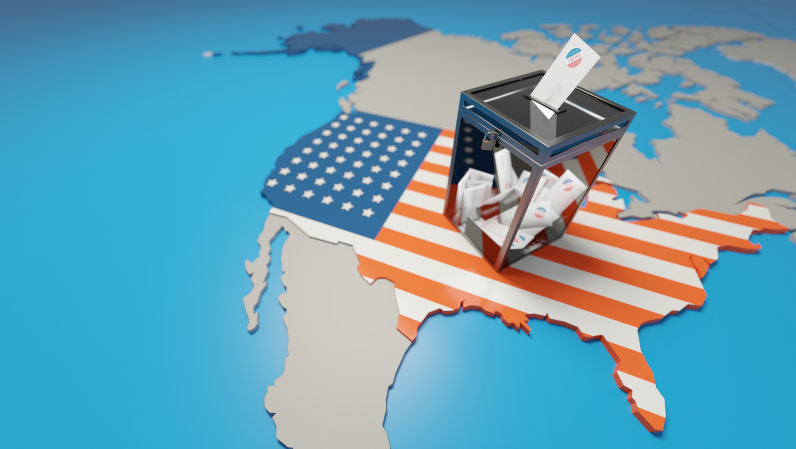The US as a new nation rejected the rule of the British monarch in a revolution and the newly created presidency was granted, ipso facto, monarchical power for four year terms. After a revolution it was deemed undesirable to have an hereditary monarchy, so a system was devised in which a president with a form of monarchical power could be elected for four years, with later constitutional amendments allowing only one subsequent term.
Ipso facto, an elected “monarchy” with all the enormous powers that bequeathed in the eighteenth century. The constitution also provided for a series of checks and balances to curtail excessive power being utilised, through the administration, Congress and the judiciary.
This system has given the US some quite good, sensibly-minded presidents. However, it also bequeathed the country a type of glorified bank clerk who destroyed two fully populated, sizeable cities in Japan once atomic bombs became available and an ex-army general lauded as the wartime chief of the Western allies during World War II who presided over a prosperous era, but was hardly a good president. Others have been mediocre on the home front and sometimes diabolical internationally, instigating wars against infinitely less powerful countries on a whim and undermining the elected governments of certain other countries, mostly justified by their own ideological interpretations.
If the US system were at fault, I would suggest that this is due, at last partially, to the system of direct elections of the president. Presidential candidates are selected through a laborious series of state primaries. Theoretically, this was to ensure the most suitable candidates would proceed to the national presidential and Congressional election. Presidents win the election, not by popular vote, but through the Electoral College system, which is compromised through the ability of the states to determine the manner in which votes are cast, eligibility to vote and the frequent use of gerrymanders. If presidents were to be elected by popular vote, Hillary Clinton would have, for better or worse, become the country’s first female president.
Would, perhaps, a system in which a president is appointed by the legislature have better outcomes for the US and be a brake on the type of presidential behaviour we are now witnessing in the US, in which enormous power is being given to certain individuals by an elected president? A popular vote applies in the election of Congress and the Senate, so the selection of a president through the existing process through which the nominees for the heads of the various departments are confirmed or rejected, would more accurately reflect the electorate’s wishes, tempered by a desire to select the most suitable candidate. This would, conceivably, reduce the tension between the three arms of government. Many Americans take pride in the history of their system but such pride is currently misplaced, as weaknesses have been exposed in no uncertain way and the wisdom of the “founding fathers” has floundered in the 21st century. The proof of the pudding is in the eating. Because the system has a history, is a reason faults in it have been exposed and pride in the system is not equal to a considered endorsement.
Here in Australia, we have had referenda which reflect the will of the people and “yes” won in the 1967 referendum, which gave Indigenous Australians citizenship and the right to be counted in the census. A more recent referendum result rejected the Voice to Parliament, a result which reflected the will of a majority of the people of this nation, though there have been numerous discussions about how this came to pass. In Britain, a referendum result gave the people Brexit, and the outcome has been debatable. A popular vote, by itself, does not necessarily produce the best outcome.
The enormous power given to the president to go outside constitutional restraints and to select unelected operatives, such as Elon Musk, brings the US electoral system into focus. Perhaps a president appointed by the legislature, with clearly defined limits, may work better for the American people.

Malcolm Chalmers
Former librarian at State Library of Queensland, BA (UQ) Studied political science and history.
